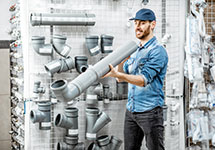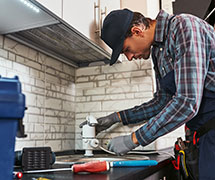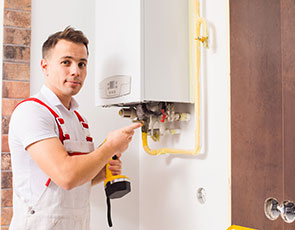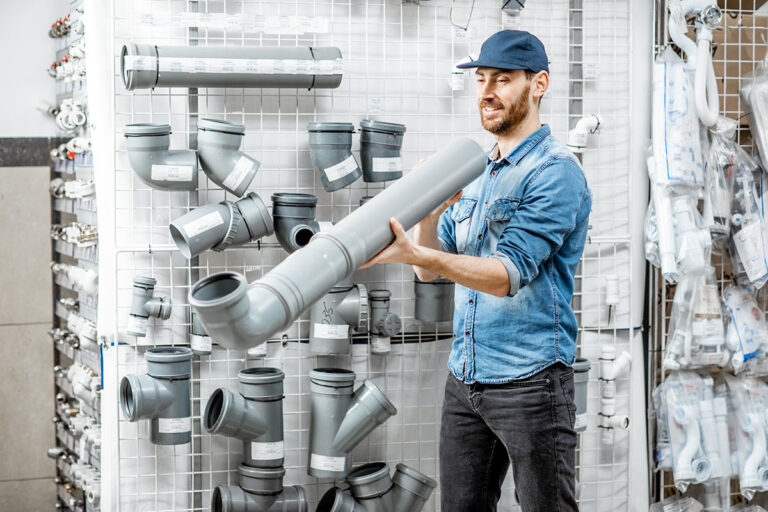WATER DAMAGE RESTORATION SERVICE
Water damage restoration in Fisherman Island, FL
Trust our experienced team to quickly assess water damage, develop a custom plan, and restore your property. Contact us for efficient and effective cleanup and restoration services.

For fast, reliable, and professional water damage restoration services to restore your property after a water damage
Industry-Leading service provider since 2018
WATER DAMAGE RESTORATION SERVICES
Our Services That We Offer To You !
Our Water damage restoration services in Fisherman Island include fast response, water extraction, drying, cleanup, mold remediation, and property restoration to pre-damage condition.
We Are The Best In This Service Business Since 2018.




INTRODUCTION OF US
Know About Us
We are a water damage restoration service provider because of our experienced and certified technicians, state-of-the-art equipment, fast response time, and commitment to providing efficient and effective restoration services to our customers.

- We are committed to ensuring your satisfaction with our work and will work tirelessly to restore your property to pre-damage condition.
- Our satisfied customers attest to the quality of our work and our commitment to exceeding their expectations for water damage restoration services.

William Hayes
Head Technician
WORK PROCESS
4 Simple Process To Follow
1
Schedule Your Appointment
2
Get Professional Advices
3
Meet Our Experts
4
Get Our Best Services
Contact for Details
Top Rated By Customers

More about the issue
Water damage restoration in Fisherman Island
Water damage is a common problem in Fisherman Island due to the region’s high humidity and frequent rainstorms.
If not handled promptly, water damage can cause significant structural and aesthetic damage to your property, as well as health hazards from mold and mildew growth.
Some common causes of water damage in Fisherman Island include:
Heavy Rainfall: Fisherman Island receives an average of 62 inches of rainfall per year, with the rainy season running from May to October. Heavy rain can cause flooding, which can lead to water damage in homes and businesses.
Storm Surges: Fisherman Island is located on the Atlantic coast and is at risk of storm surges during hurricanes and tropical storms. Storm surges can cause severe flooding and damage to properties.
Plumbing Issues: Faulty plumbing, leaking pipes, and water heater malfunctions can all cause water damage. These issues are not unique to Fisherman Island but can be exacerbated by the region’s humidity and temperature.
Roof Leaks: The high humidity in Fisherman Island can cause roofs to deteriorate faster than in other areas, leading to leaks during heavy rainfall.
Poor Drainage: In some areas of Fisherman Island, poor drainage can cause water to accumulate around properties, leading to water damage.
Humidity: The high humidity in Fisherman Island can cause condensation on walls, ceilings, and windows, leading to moisture buildup and water damage.
It’s important to address the causes of water damage in Fisherman Island promptly to prevent further damage and avoid health hazards from mold and mildew growth. Regular maintenance and inspections can help identify potential issues and prevent water damage from occurring.
The risk
The risks associated with water damage
Water damage poses various risks to both the structure of a property and the health of its occupants. Here are some of the most significant risks associated with water damage:

Structural Damage: Water can cause significant damage to the structure of a property, weakening foundations, walls, and ceilings. Over time, this can lead to mold growth, wood rot, and other forms of structural damage that can compromise the safety and stability of the property.
Electrical Hazards: Water can cause electrical hazards, particularly if it has come into contact with electrical systems or appliances. This can pose a risk of electrocution or fire, making it essential to turn off the electricity and gas supply in the event of water damage.
Mold and Mildew Growth: When left untreated, water damage can create conditions for mold and mildew growth. These fungi thrive in damp environments and can cause serious health issues, including respiratory problems, allergies, and infections.
Health Risks: Water damage can pose a risk to human health, particularly if the water contains bacteria, viruses, or other harmful contaminants. Water damage can also create conditions for pests such as rodents and insects, which can carry diseases and create further health hazards.
Property Damage: Water damage can cause significant damage to personal property, including furniture, electronics, and personal belongings. In some cases, this damage may be irreversible, leading to significant financial losses.
It’s essential to address water damage promptly to mitigate these risks. Water damage repair contractors can assess the extent of the damage and take steps to prevent further damage and address any health hazards.
Homeowners should also take steps to prevent water damage, such as regular maintenance and inspections and taking steps to ensure proper drainage and ventilation.
Water Damage Repair Techniques

Water damage repair techniques depend on the extent and type of damage, as well as the materials affected.
Water Extraction and Drying
Water extraction and drying are essential components of water damage repair. Here are some of the steps involved:
Water Removal: The first step in water extraction and drying is to remove any standing water from the affected area. This may involve using specialized equipment such as pumps, vacuums, and extractors.
Drying: Once the water has been removed, the area needs to be thoroughly dried to prevent mold growth and further damage. This can be done using fans, dehumidifiers, and other drying equipment.
Moisture Monitoring: Throughout the drying process, moisture levels need to be monitored to ensure that the area is drying properly. Moisture meters and other specialized equipment can be used for this purpose.
Cleaning and Disinfection: Once the area is dry, it should be cleaned and disinfected to prevent the growth of mold and other harmful microorganisms.
Dehumidification and Ventilation
Dehumidification and ventilation are important components of water damage repair. Here’s what’s involved:
Dehumidification: Dehumidifiers are used to remove excess moisture from the air, which can help prevent mold growth and further damage.
Ventilation: Proper ventilation is crucial to promote airflow and speed up the drying process. Fans and other equipment can be used to improve ventilation.
Monitoring: Moisture levels and humidity need to be monitored throughout the dehumidification and ventilation process to ensure that the area is drying properly.
Carpet and Upholstery Cleaning
Carpet and upholstery cleaning is a crucial part of water damage repair. Here’s what’s involved:
Inspection: The first step is to inspect the carpets and upholstery to assess the extent of the damage.
Cleaning: Depending on the level of damage, carpets and upholstery may need to be cleaned using specialized equipment and cleaning solutions.
Drying: Once the carpets and upholstery have been cleaned, they need to be thoroughly dried to prevent mold growth.
Restoration: In some cases, carpets and upholstery may need to be replaced if the damage is severe.
Structural Drying and Decontamination
Structural drying and decontamination are important steps in water damage repair. Here’s what’s involved:
Assessment: The first step is to assess the extent of the damage to the structure of the property.
Drying: Once the water has been removed, the affected area needs to be thoroughly dried to prevent mold growth and further damage.
Decontamination: If the water contains harmful contaminants, the affected area may need to be decontaminated to prevent health hazards.
Restoration: Once the area is dry and decontaminated, repairs and restoration can begin.
Mold and Mildew Remediation
Mold and mildew remediation is a crucial component of water damage repair. Here’s what’s involved:
Inspection: The first step is to inspect the affected area to assess the extent of the mold and mildew growth.
Removal: The mold and mildew need to be removed using specialized equipment and cleaning solutions.
Drying: Once the mold and mildew have been removed, the area needs to be thoroughly dried to prevent further growth.
Prevention: Steps should be taken to prevent further mold and mildew growth, such as improving ventilation and reducing humidity levels.

Precautions
Preventing Water Damage in Fisherman Island
Prevention is the best way to avoid water damage and the associated repair costs. In this section, we’ll provide some tips for preventing water damage in your Fisherman Island property.
Regular Maintenance and Inspections
Regular maintenance and inspections can help you detect and address potential water damage issues before they become serious. Here are some maintenance tasks you should perform regularly:
Check for leaks: Look for leaks in your plumbing, roof, and windows, and repair them promptly.
Clean gutters and downspouts: Clean your gutters and downspouts regularly to prevent water from overflowing and causing damage.
Check appliances: Inspect your appliances, such as your washing machine, dishwasher, and water heater, for signs of leaks or damage.
Inspect your roof: Regularly inspect your roof for damage or signs of wear and tear.
Installing Water Alarms and Shut-off Valves
Installing water alarms and shut-off valves can help you detect and prevent water damage. Here’s what you should know:
Water alarms: Water alarms can alert you when there is a water leak or flood in your home. These alarms can help you take action quickly to prevent serious damage.
Shut-off valves: Shut-off valves can automatically turn off your water supply if a leak is detected. This can help prevent serious water damage and reduce repair costs.
Keeping Gutters and Downspouts Clear
Keeping your gutters and downspouts clear is crucial for preventing water damage. Here’s why:
Clogged gutters: Clogged gutters can cause water to overflow and damage your home’s foundation and interior.
Downspouts: Downspouts should be directed away from your home’s foundation to prevent water from pooling and causing damage.
Ensuring Proper Ventilation and Insulation
Proper ventilation and insulation can help prevent water damage caused by moisture buildup. Here’s what you should know:
Ventilation: Proper ventilation can help prevent moisture buildup in your home, which can cause mold and mildew growth.
Insulation: Proper insulation can help prevent moisture buildup and condensation in your home, which can cause water damage.
By following these tips, you can help prevent water damage in your Fisherman Island property and save yourself the hassle and expense of water damage repair.







